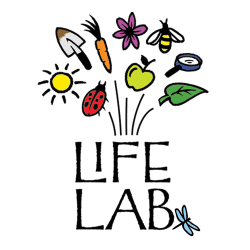1. PORTS
 | Description: PORTS stands for Parks Online Resources for Teachers and Students. Bring CA State Parks into the classroom, digitally. Over 55 parks in all corners of the state, they have free resources for you! Nature, Science, History, Culture. You name it, they’ve got it. Check out the PORTS website for program offerings. |
2. Nature Journaling Curriculum by John Muir Laws
 | Description: Nature Journaling is a powerful adjunct to teaching science and should be a standard part of every classroom. Journaling is an ideal way to explore the Next Generation Science Standards. How to Teach Nature Journaling is the comprehensive guide for educators, parents and those who wish to mentor others to develop journaling skills. It is available both as a printed book and a free PDF download. Order or download it here. The second edition of the acclaimed curriculum, Opening the World through Journaling: Integrating art, science, and language arts, is also available as a free download. Download the curriculum here. |
4. Life Lab School Garden Resources
 | Description: Are you looking to build a new garden or reinvigorate your already existing school garden this spring? Life Lab offers numerous school garden resources for educators including lessons, activities, recipes, art in the garden, planting tips, and webinars. They also provide resources in Spanish. Additionally, Life Lab offers educator workshops including virtual offerings. Check out the Life Lab website for school garden educator resources. |
5. Green Schoolyards America: Outdoor Learning in All Types of Weather
 | Description: Outdoor learning on a sunny day is a relatively straightforward undertaking. However, very few places in the United States can count on constant sunshine and moderate weather. So the idea of bringing learning outdoors often leads to this question: What happens when it is cold or hot or stormy? With planning and preparation, it is possible to carry on outdoor learning in a variety of types of weather. Depending on the season and region, weather challenges may include heat, cold, wind, rain, and snow that range from mild to moderate or severe. Schools in all regions will need to have multiple plans for addressing the variability of weather throughout the seasons and on any given day. Check out the resources and recommendations provided at the Green Schoolyards America website on weather considerations. |



























